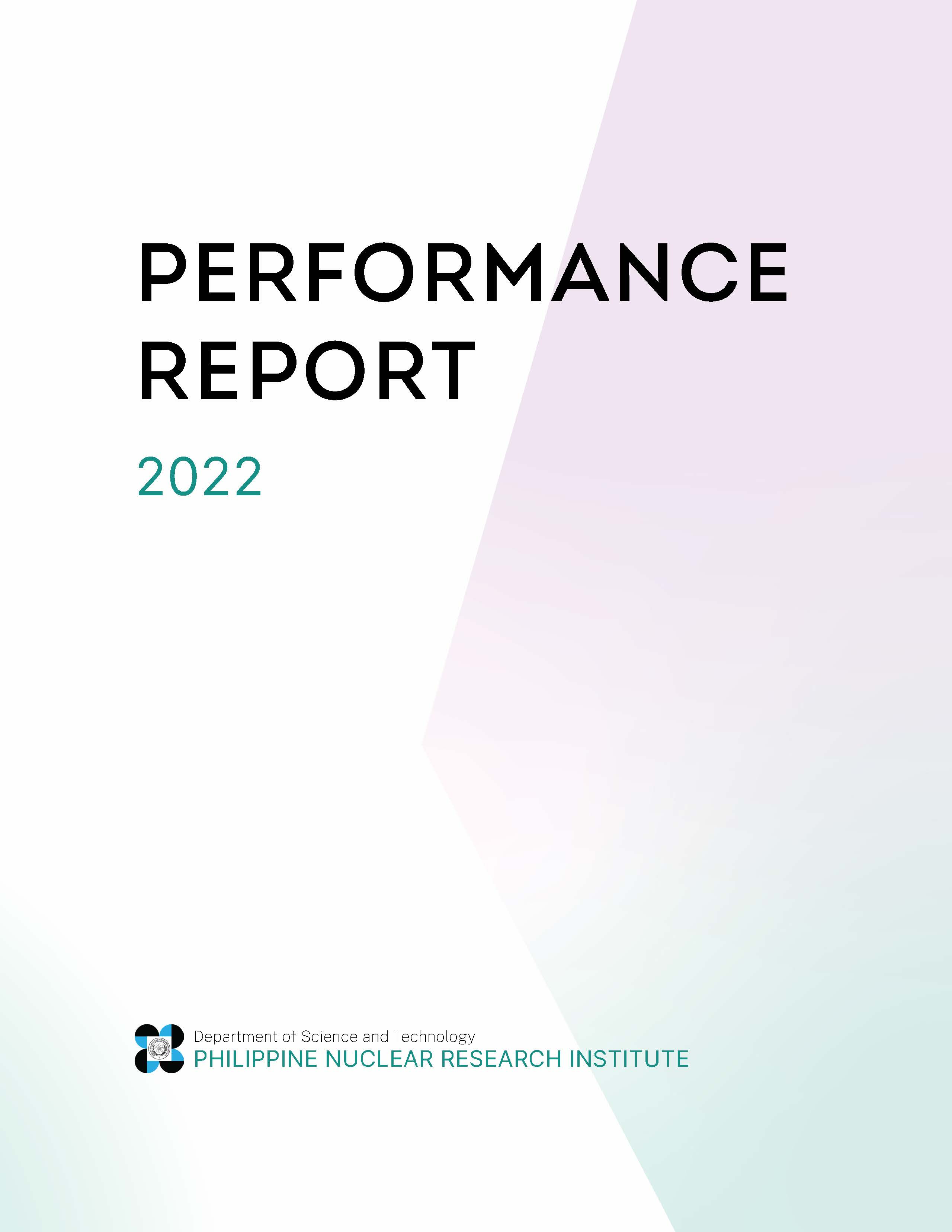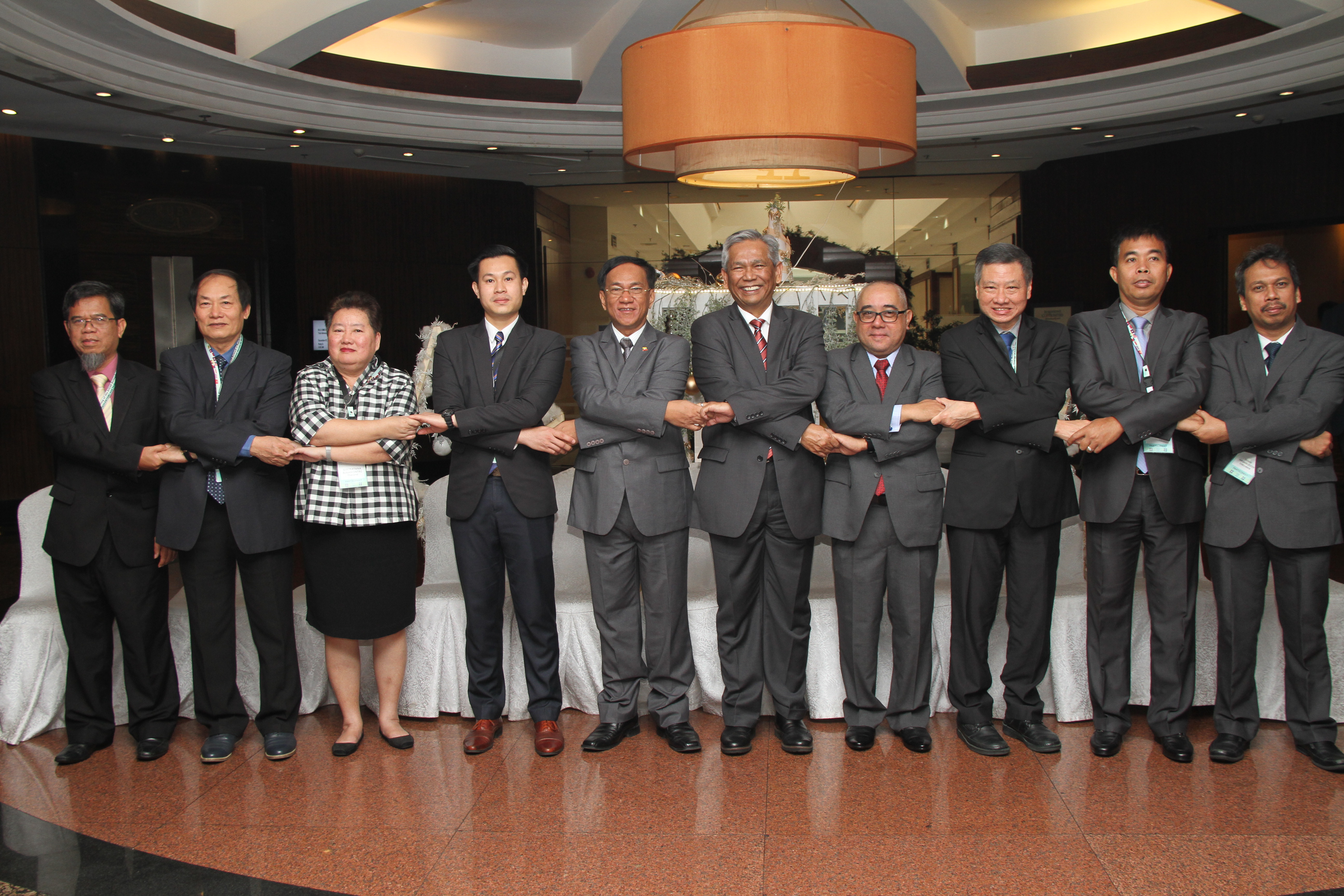DOST – PNRI Partners with DepEd in IAEA Regional Technical Cooperation Project on Nuclear Science and Technology Education
- Details
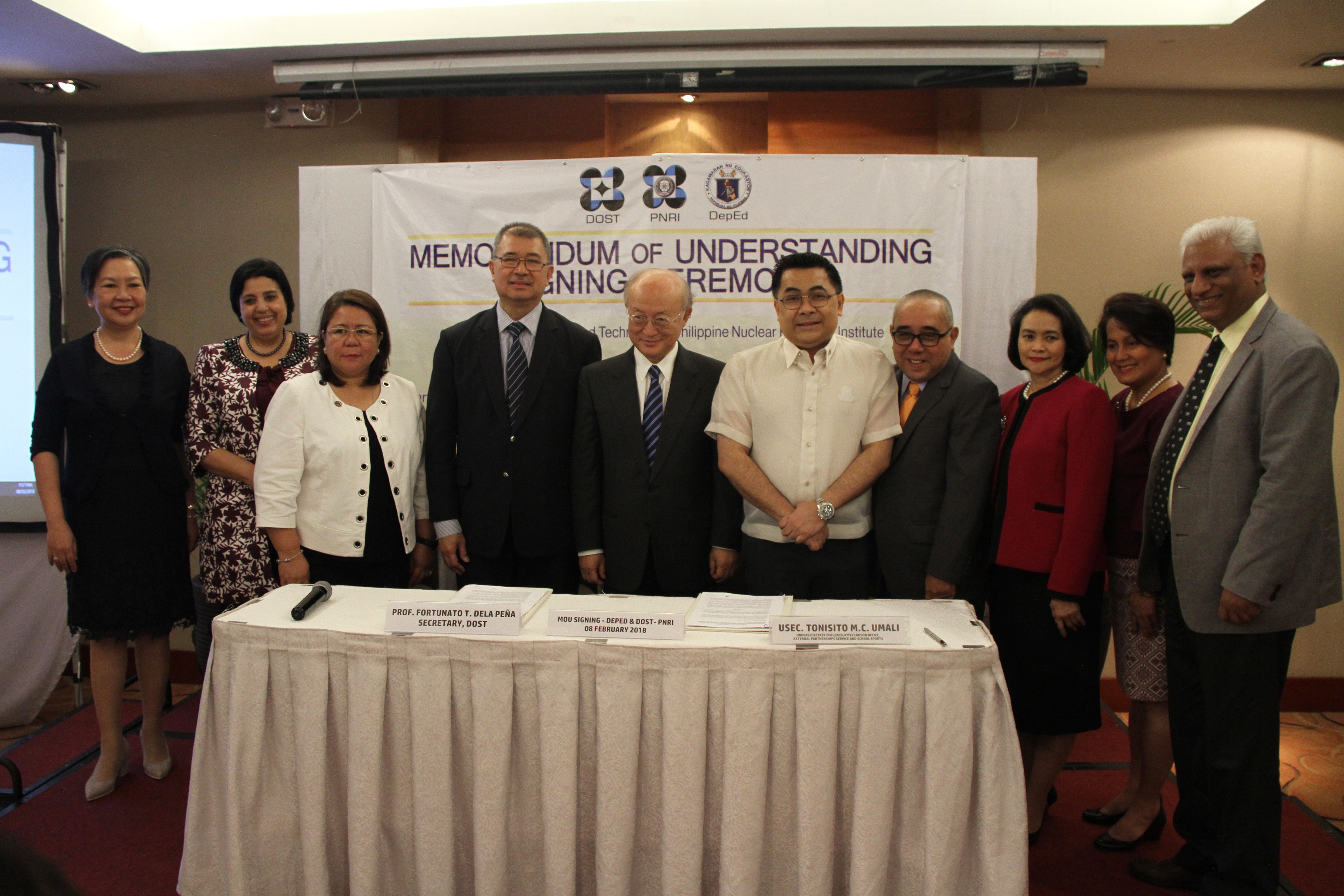
Officials from the International Atomic Energy Agency, Department of Science and Technology and Department of Education pose for a group photo after the Memorandum of Understanding signing ceremony: IAEA Director General Yukiya Amano (5th from left), Secretary Fortunato De La Peña of the Department of Science and Technology (DOST) (4th from left), Undersecretary Tonisito Umali of the Philippines’ Department of Education (DepEd) (5th from right), Ambassador Maria Cleofe Natividad, Permanent Representative of the Philippines to the IAEA (3rd from right), DOST Undersecretary Dr. Rowena Cristina Guevara (3rd from left), IAEA Department of Technical Cooperation Director of the Division of Asia and the Pacific Dr. Najat Mokhtar (2nd from left), DOST-Philippine Nuclear Research Institute Director Dr. Carlo Arcilla (4th from right), DepEd External Partnerships Service Director Dr. Margarita Ballesteros (2nd from right), IAEA Department of Technical Cooperation Division of Asia and the Pacific Section Head and Project Management Officer Dr. Jane Gerardo-Abaya (extreme left) and IAEA Technical Officer Dr. Sunil Sabharwal (extreme right).
DOST – PNRI Partners with DepEd in IAEA Regional Technical Cooperation Project on Nuclear Science and Technology Education
Taking the next great stride in the teaching of nuclear science and technology in secondary schools, the Philippines officially engages in an International Atomic Energy Agency (IAEA) education project through a Memorandum of Understanding (MOU) between its science and education departments.
The document, which was signed on February 8, establishes the partnership between the Department of Education (DepEd) and the Department of Science and Technology – Philippine Nuclear Research Institute (DOST-PNRI) in implementing the IAEA Regional Technical Cooperation Project RAS0079 on Educating Secondary Students and Science Teachers on Nuclear Science and Technology.
The signatories were DOST Secretary Fortunato De La Peña and DepEd Secretary Dr. Leonor Briones, who each holds important leadership positions in the cabinet, and are indispensable to the national scope of the project’s implementation. DepEd Undersecretary Tonisito Umali was present in Dr. Briones’ behalf during the signing ceremony.
IAEA Director General Yukiya Amano, who visited the Philippines on February 7 to 11, was also one of the witnesses in the signing of the MOU, which served as another milestone in the history of Atoms for Peace and Development in the country.
“The Philippines has been a very active member of the IAEA since 1958, the year that the Agency was established in Vienna,” Director General Amano said. The IAEA has various Technical Cooperation projects which were completed or are currently ongoing in the Philippines, which is now privileged to be the designated host country for the new IAEA education project.
The objective of the IAEA technical cooperation project is to help increase the interest of students in the Asia - Pacific region regarding science and technology in general, eventually leading to future careers in Science, Technology, Engineering and Mathematics (STEM). It also seeks to provide a more accurate perspective of nuclear concepts among secondary school students and a better understanding of nuclear and radiation applications in their daily lives.
“I am confident that this project will lead to an increase in the number of bright young people who will take up their studies in the nuclear field in the coming years. They will then be well-placed to contribute to the health, well-being and prosperity of their countries” said Director General Amano, as he lauded the potential of students across the Asia-Pacific region to contribute to the regional development.
Also present during the signing ceremony were DepEd External Partnerships Service Director Margarita Ballesteros and DOST-PNRI Director Dr. Carlo Arcilla, as well as several officials from IAEA and the Philippine government, and around 30 foreign and local education representatives from 19 countries participating in the concurrent Regional Workshop on Curriculum Development and Launching of Nuclear Science and Technology for Secondary Schools being conducted from February 5 to 9.
The four-year project will facilitate the training of secondary science teachers and students on nuclear S&T throughout the IAEA Member States through scientific visits, hosting of expert missions and the conduct of regional and national seminars and workshops. Educational and learning resource materials on nuclear science will also be developed in various formats.
Along with Indonesia, Malaysia and the United Arab Emirates, the Philippines previously participated as a pilot country in an earlier IAEA outreach project which introduced nuclear S&T in the region’s secondary schools.
The DOST-PNRI showed a strong history of cooperation with several agencies under DepEd from 2015 to 2017, which also reflects the gradual growth of IAEA’s outreach program from a geographic perspective. At the city level, the agency piloted nuclear science education activities with the Schools Division Office Quezon City, before later expanding to the DepEd – National Capital Region, which is in charge of millions of students among the country’s most popular cities.
IAEA experts trained Filipino science teachers on the use of interactive experiments, novel tools and high-tech instruments such as cloud chamber kits and radiation survey meters to reignite the interest of young students in nuclear science.
During the signing ceremonies, science teachers and students who benefitted from the outreach program gave their testimonials as to how nuclear science and technology changed their lives. In particular, two of the students from the pilot high schools have taken up science-related courses in some of the premier universities in the Philippines.
The implementation of the new project in the Philippines makes for a more effective avenue for IAEA’s technical and financial support towards nuclear science education in the Philippines, and will hopefully serve as a model for other Member States in the region.
Philippines Hosts Nuclear Workshop for Educators in the Asia-Pacific Region
- Details
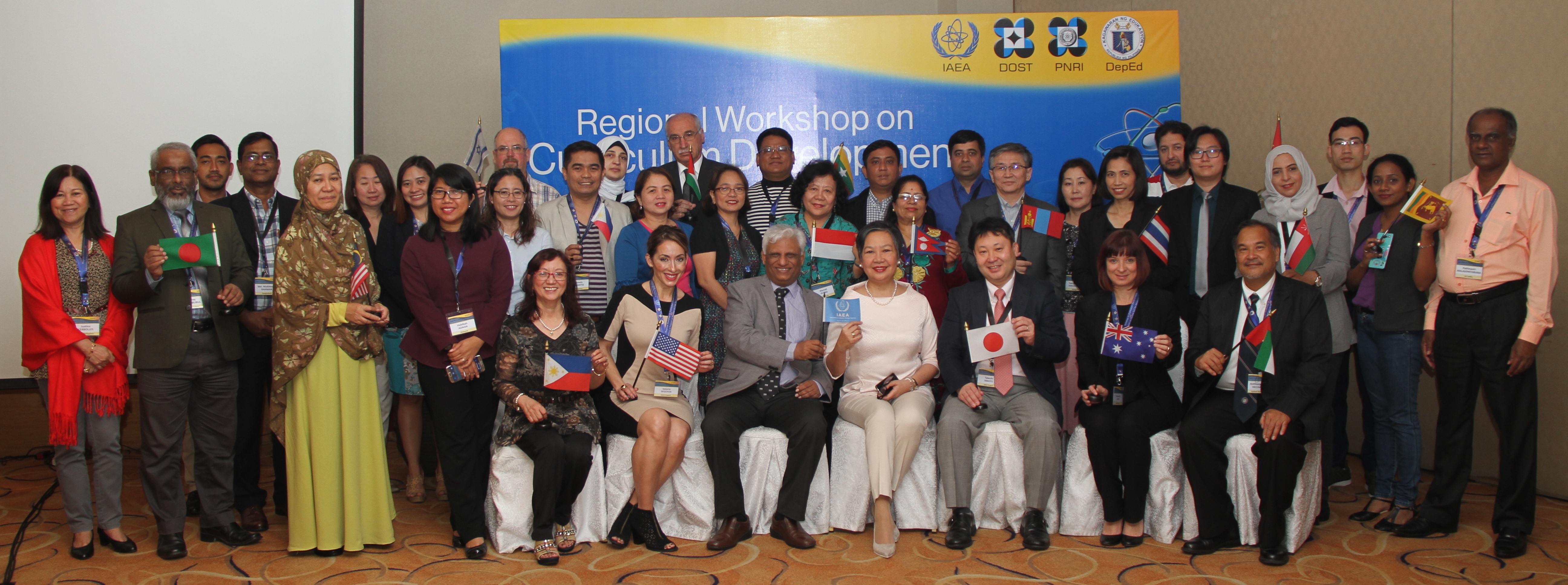
IAEA officials and experts with leading educators, communicators and government representatives from 23 IAEA Member States during the Regional Workshop on Curriculum Development and Launching of Nuclear Science and Technology for Secondary Schools held in the Philippines
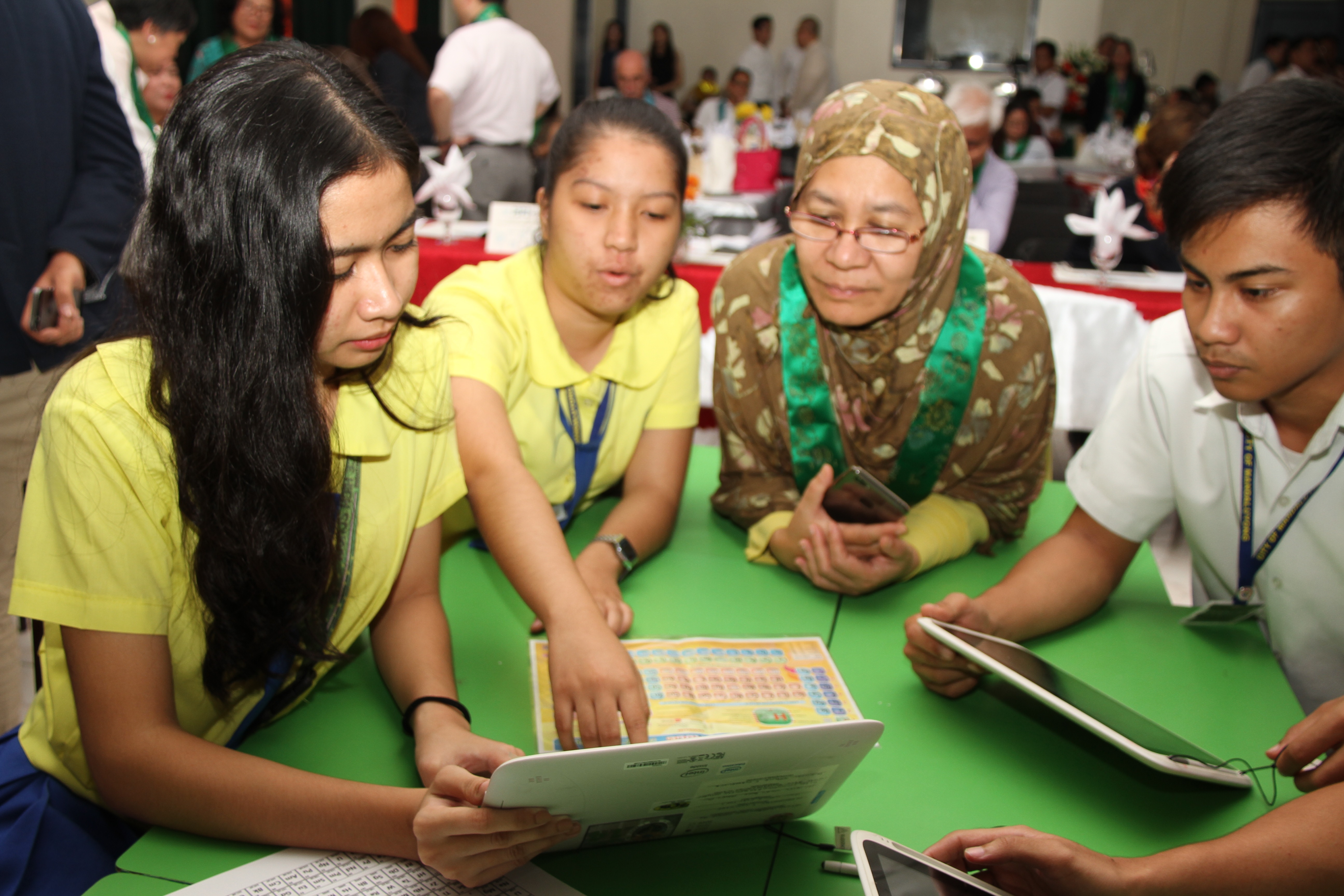
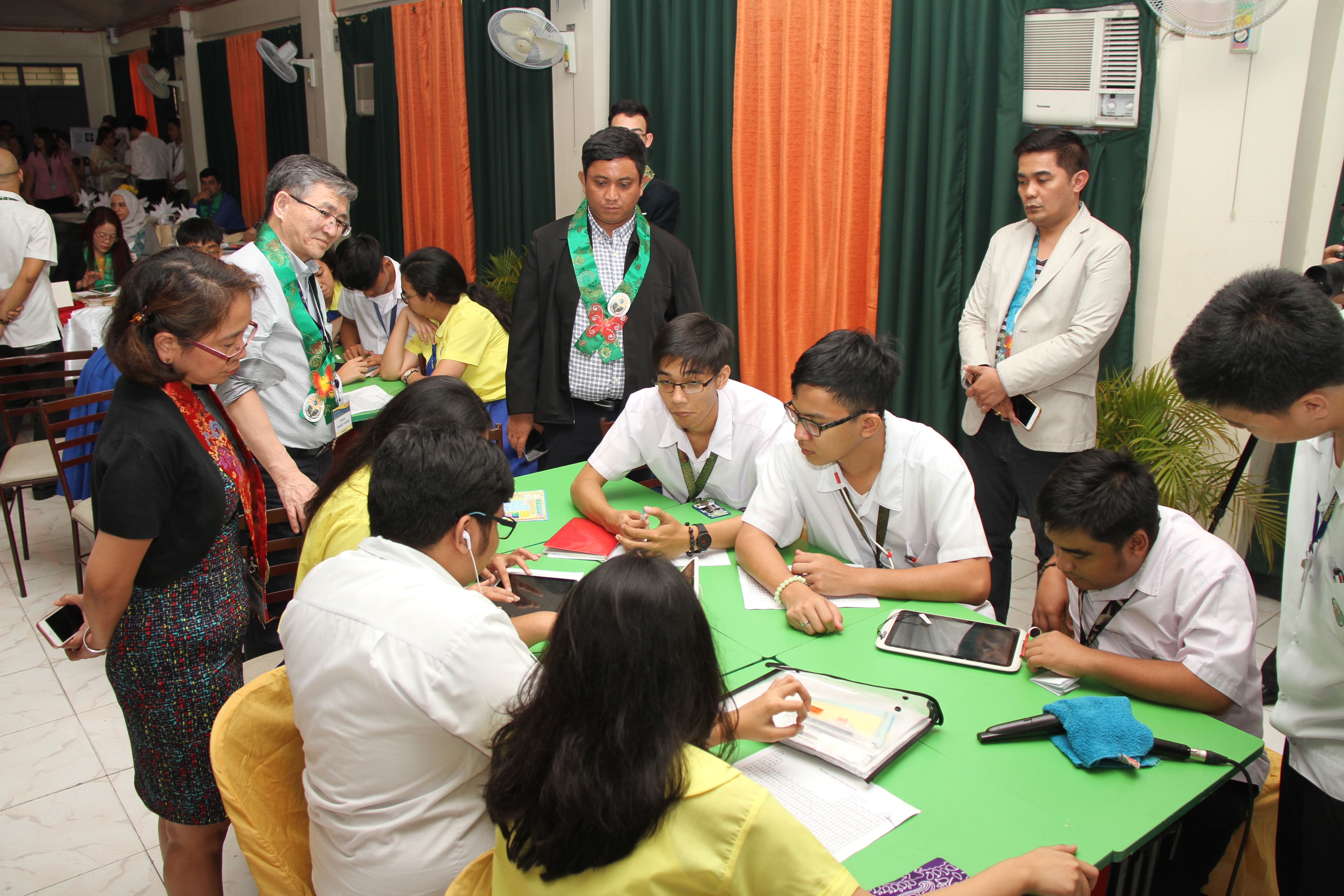
Workshop participants observe as students were taught nuclear reactions in a chemistry class conducted in the Philippines during the IAEA Regional Workshop on Curriculum Development and Launching of Nuclear Science and Technology for Secondary Schools
IAEA Reaches out to Secondary Schools in the Asia-Pacific Region
Dwindling numbers of young students across Asia and the Pacific region are taking up science-related fields, particularly during their crucial years in secondary schools. More than a problem in each Member State’s educational system, it also jeopardizes the future of scientific and technical manpower, especially with the increasing contribution of nuclear-related applications for developing economies and industries.
Fortunately, leading educators, communicators and ministry officials in the Asia-Pacific region are starting the year right by making new commitments to bring secondary students back on track in the sciences through the International Atomic Energy Agency (IAEA) Regional Workshop on Curriculum Development and Launching of Nuclear Science and Technology for Secondary Schools from February 5 to 9, 2018 in the Philippines.
Spearheading the program as the designated lead country, the Philippines hosted the five-day event under the IAEA Technical Cooperation Project RAS 0079 on “Educating Secondary Students and Science Teachers on Nuclear Science and Technology” with more than 40 participants from 23 Member States.
IAEA experts from Australia, Japan and the United States of America shared their experiences and strategies to assist the Member States who have yet to include nuclear science in their education programs, as well as to sustain the progress of countries which are already in the process of integration in their respective curriculums.
The workshop aims to launch the regional program and organize the regional team in participating IAEA Member States for developing strategies that will help increase the interest of students in the region regarding science and technology in general, eventually leading to future careers in Science, Technology, Engineering and Mathematics (STEM).
In particular, the program will also help to provide a more accurate perspective of nuclear science among secondary school students and a better understanding of nuclear and radiation applications in their daily lives.
“Collectively we can seek to raise a new generation of young people who are much more informed of the facts surrounding nuclear science and technology and understand the important outcomes and benefits it helps to deliver in the key areas of human health, sustainability and driving innovation for our industries,” said Ms. Cassandra Casey, who handles communications and community relations at the Australian Nuclear Science and Technology Organisation (ANSTO) who served as one of the experts for the workshop.
As part of the program, several IAEA officials, including Director General Yukiya Amano himself, witnessed the signing of a Memorandum of Understanding between the Philippines’ Department of Education and the Department of Science and Technology - Philippine Nuclear Research Institute for implementing the project on a national level.
Planned to be implemented for five years, from 2018 to 2022, the activities for the IAEA project include the training of secondary science teachers and students on nuclear S&T through scientific visits, hosting of expert missions and the conduct of national seminars and workshops. Educational and learning resource materials on nuclear science will also be developed in various formats.
The development of these activities and materials build upon the previous success of an earlier IAEA outreach project, RAS0065 on “Supporting Sustainability and Networking of National Nuclear Institutions in Asia and the Pacific Region” which was pilot-tested by Indonesia, Malaysia, the Philippines and the United Arab Emirates from 2015 to 2017.
A key component of the project is the adoption of activities under the activities from a list of the IAEA-developed Compendium of Resources and Activities on Nuclear Science and Technology for Secondary School Teachers and Students.
“Over the years, through the contributions of fellow experts leading this project, we are now seeing the superb efforts of the Member States who have taken global best practices of the Compendium and have applied them to their local curriculums and local needs,” said Dr. Valerie Segovia of the Nuclear Power Institute in Texas, USA, who joined in both the development of the Compendium as well as in seeing these ideas in action during the pilot project.
Experts from the IAEA trained science teachers on the use of interactive experiments, novel tools and high-tech instruments such as cloud chamber kits and radiation survey meters to reignite the interest of young students in nuclear science.
Among these experts is Dr. Takeshi Iimoto, a Japanese radiation protection expert and professor from the University of Tokyo, who helped develop the classroom-scale experiments. During his visits to the pilot schools and interaction with many of the students, he was impressed with how all pilot countries adapted the IAEA Compendium activities from its original Japanese context into a form which evolved to suit the needs of different cultures.
“I am proud that Japanese knowledge and experiences accumulated over a long period of time, and tools developed in Japan are effectively used in their activities,” said Dr. Iimoto.
With the new project well underway, the IAEA is poised to provide more technical and financial assistance towards nuclear science education, not only in the Philippines, but throughout the Asia-Pacific region.
PNRI Celebrates the 45th Atomic Energy Week
- Details
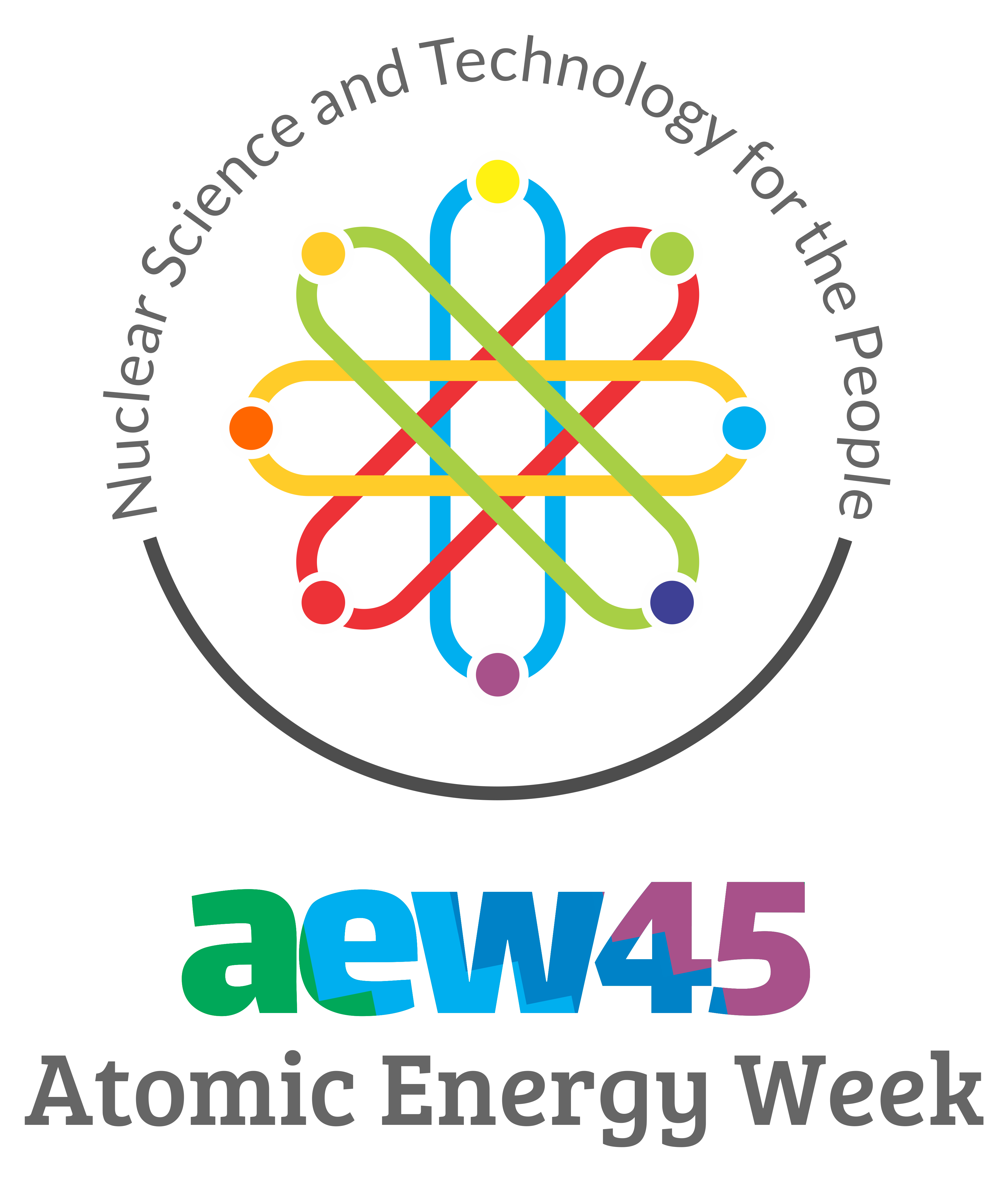
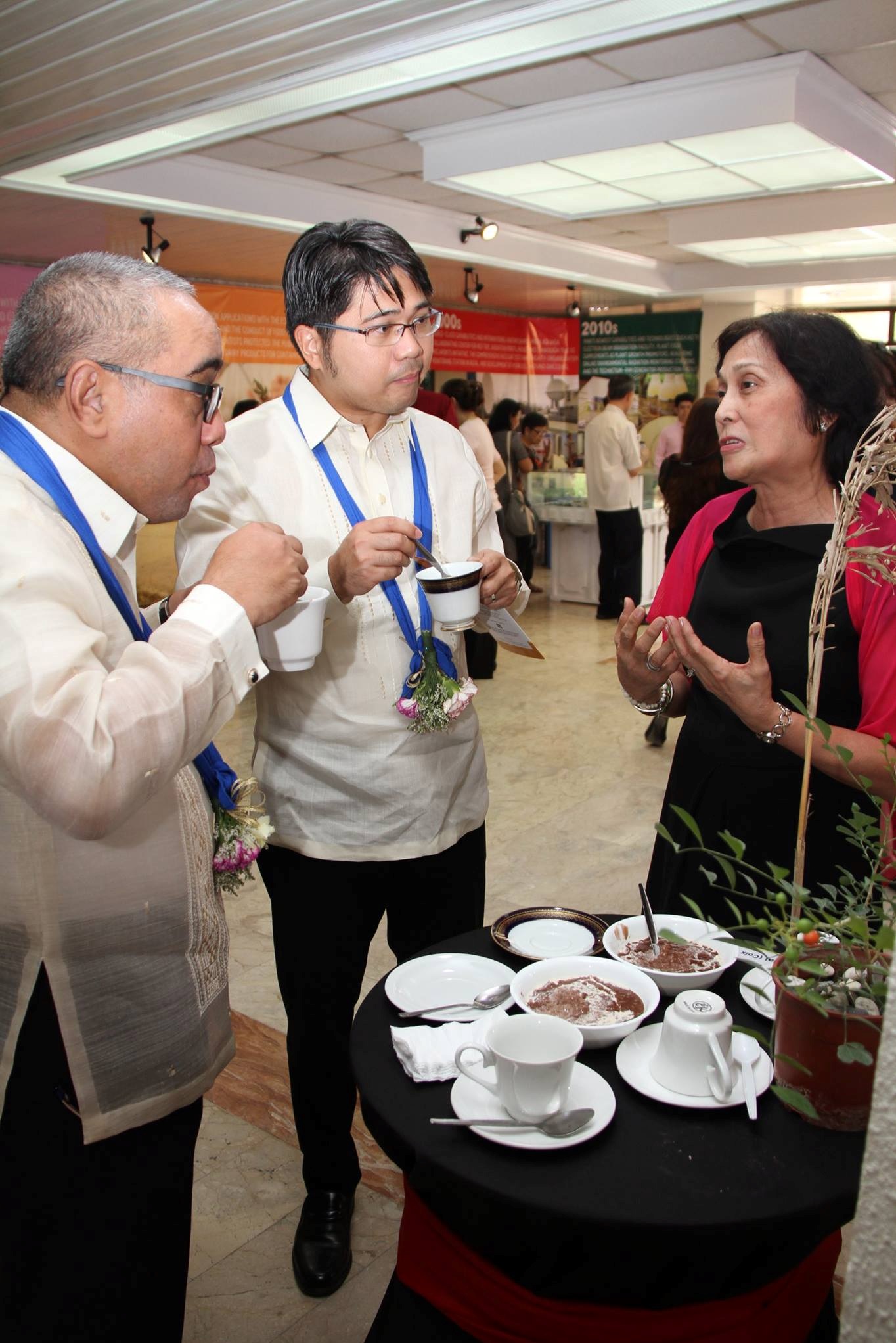
45th AEW Opening Ceremonies Keynote Speaker Congressman Ron Salo and PNRI Director Dr. Carlo Arcilla enjoy a serving of warm Adlai champorado as a researcher explains the ongoing PNRI mutation breeding studies on Adlai, which may serve as an alternative staple food crop.
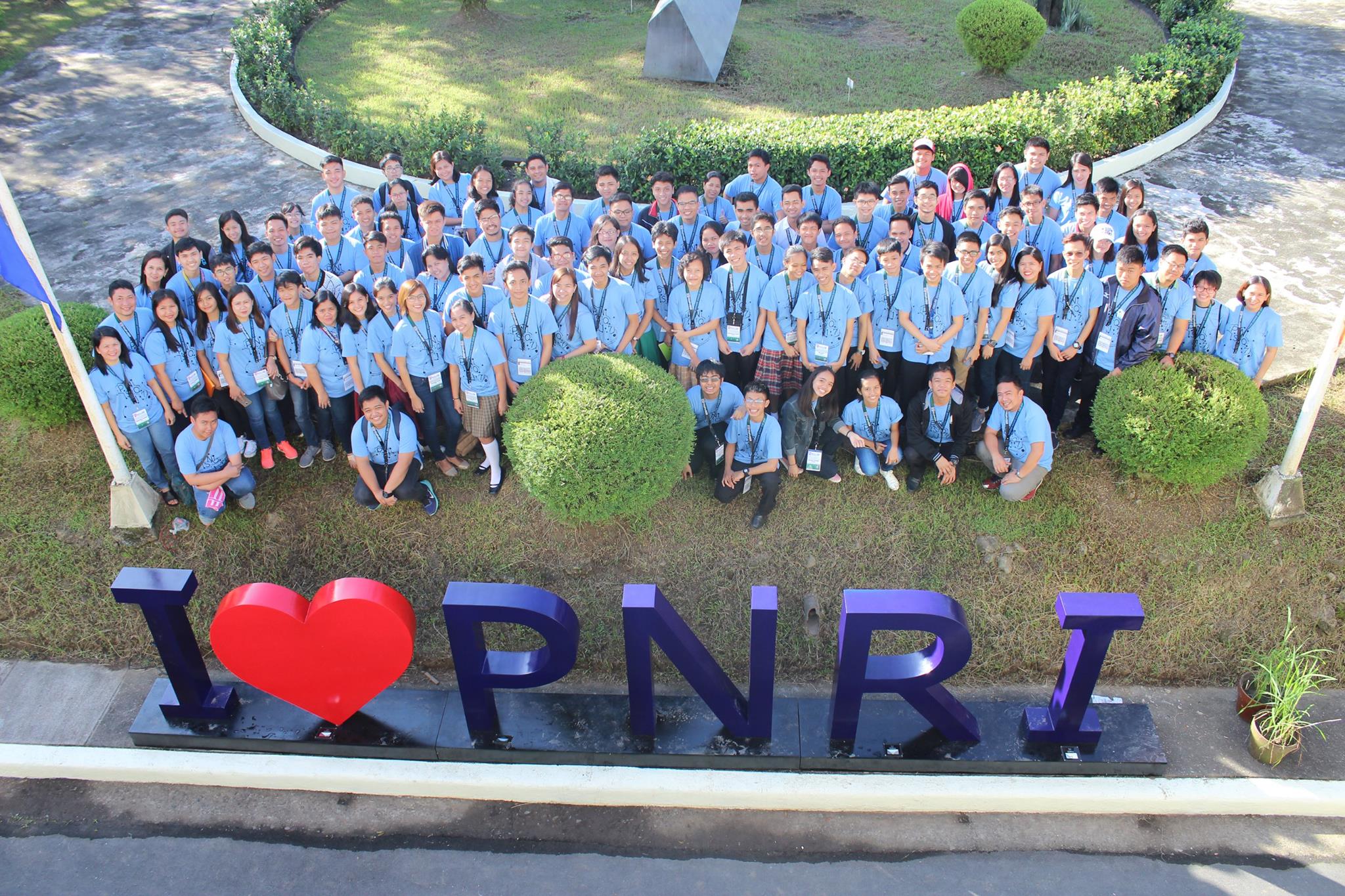
Participants from all 17 regions of the country gather for the National Level of the 2017 Philippine Nuclear Science Quiz (Photo by JF Vidal, ARS-ARD PNRI).
PNRI Celebrates the 45th Atomic Energy Week
Bringing nuclear and radiation applications closer to the Filipino people, the Department of Science and Technology – Philippine Nuclear Research Institute (DOST-PNRI) celebrated the 45th Atomic Energy Week (AEW) with the theme, “Nuclear Science and Technology for the People" from December 4-7, 2017 at the PNRI compound.
As with every year's celebration, PNRI once again featured the latest advances in nuclear science and technology in the country in the fields of agriculture, industry, medicine, and the environment in an open-house showcase of exhibits by PNRI scientists and researchers with free guided tours for all visitors.
Congressman Ron Salo, one of the authors of the bill for a Comprehensive Nuclear Law, was the keynote speaker on the Opening Ceremonies on December 4.
A self-confessed opponent of nuclear energy at first, he now takes a more progressive stance on the peaceful and diverse nuclear and radiation technology.
“Beyond being the force of nature tapped to serve humanity’s basic needs, it is also one of the few economic forces where supply is much hoped to be sufficient enough to save our citizens from the problems of poverty and hunger. So it is that nuclear energy, purportedly one of the best combinations of excellent baseload power and emission-free power sources, comes back to the fore as a potential major power source in the Philippines’ energy mix,” said Congressman Salo on the benefits of nuclear energy.
“More than nuclear energy, however, it seems that there is more than meets the eye for PNRI in terms of what it can contribute to the welfare of the Filipino people. As I have learned from your officials, a plethora of nuclear and radiation applications are currently being used for increasing the yield of our food crops, for processing of our commercial products and raw materials, and of course, for the diagnosis and treatment of diseases, among other marvels of medical science,” he added.
Technical sessions were also held with various experts from PNRI and other government, scientific and academic institutions on December 4 to 5. The first day featured topics on nuclear power such as the preparedness of the Philippines for nuclear power, siting for nuclear installations and waste management for nuclear and radioactive materials. Topics on nuclear and radiation technology were discussed the following day such as real-time environmental radiation monitoring, nuclear emergency preparedness and response, medical applications of cyclotrons and mutation breeding studies.
Meanwhile, senior high school students, teachers and young professionals attended the Third Philippine Nuclear Youth Summit (PNYS) in tandem with the launching of the Philippine Young Generation in Nuclear (PYGN), an organization of young Filipinos that aims to promote the practice of nuclear science and technology in the Philippines. The PNYS featured several activities that presented both physical and mental challenges such as the Nuclear Amazing Race and the Youth Statement Crafting on Nuclear Energy.
Moreover, 34 teams of high school students representing the 17 regions in the country competed in the national level of the 2017 Philippine Nuclear Science Quiz (PNSQ) on December 6.
At the end of the grueling final round, St. Jude Catholic School won first place with P50,000, followed by Cagayan National High School at second place, with P40,000 and Davao City National Science High School at third place with P30,000. Taking home the consolation prize of P15,000 are the students from Philippine Science High School – Central Visayas Campus at fourth place and Commonwealth High School at fifth place.
The annual AEW celebration, as mandated under Presidential proclamation No. 1211 in 1973, aims to generate awareness of the Filipino people on the beneficial uses of nuclear science and technology in food and agriculture, industry, medicine and the environment.
Philippines Successfully Hosts 4th ASEANTOM Annual Meeting
- Details
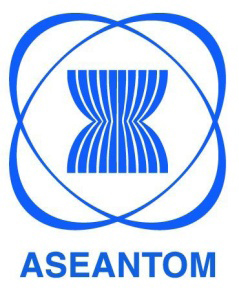
The various heads and representatives of nuclear regulatory bodies in Southeast Asia performing the iconic ASEAN handshake during the opening of the 4th Annual Meeting of the ASEAN Network of Regulatory Bodies on Atomic Energy (ASEANTOM) on December 7 at the Crowne Plaza Manila Galleria in Quezon City.
From left: Mr. Mohd Pauzi Mohd Sobari of Malaysia, Mr. Van Vinh Tran of Vietnam, Ms. Siriratana Biramontri of Thailand, Mr. Phonesavanh Lathdavong of Lao PDR, Mr. Khin Maung Latt of Myanmar, International Atomic Energy Agency (IAEA) Division of Nuclear Security Director Mr. Raja Abdul Aziz Raja Adnan, Mr. Carlo Arcilla of the Philippines, Mr. Kim Hock Koh of Singapore, Mr. Sodavath Chan of Cambodia and Mr. Ishak Hasanuddin of Indonesia.
Philippines Succesfully Hosts 4th ASEANTOM Annual Meeting
Representatives from the various nuclear regulatory bodies of the Association of Southeast Asian Nations (ASEAN) met in the Philippines as it hosted the 4th Annual ASEANTOM Meeting and Technical Session on Nuclear Security on December 7 to 8, 2017 at the Crowne Plaza Manila Galleria in Quezon City.
The ASEANTOM, or ASEAN Network of Regulatory Bodies on Atomic Energy, was established in 2013 to strengthen nuclear safety, security, and safeguards by enhancing cooperation and complementing the work among the ASEAN countries with the existing mechanisms at the national, regional, and international levels.
The countries participating in the ASEANTOM are Brunei Darussalam, Cambodia, Indonesia, Lao People's Democratic Republic, Malaysia, Myanmar, Philippines, Singapore, Thailand and Vietnam.
Aside from the annual meeting, the event also included technical sessions that will discuss on matters such as the current status of nuclear security in each ASEAN country, the role of various networks such as the International Atomic Energy Agency (IAEA) Global Nuclear Safety and Security Network (GNSSN) and Asian Nuclear Safety Network (ANSN), the strengthening of partnerships with other countries such as the USA, European Union, Canada, Australia, China, Japan and Korea, and future IAEA-supported projects on the security of radioactive sources throughout the ASEAN region.
The meeting was also sponsored in part by the Philippine Council for Industry, Energy and Emerging Technology Research and Development (PCIEERD).
After the two-day event, the visiting representatives from ASEAN countries visited the Bataan Nuclear Power Plant on December 9.
The PNRI serves as the Philippines’ regulatory body for nuclear and radioactive materials.















